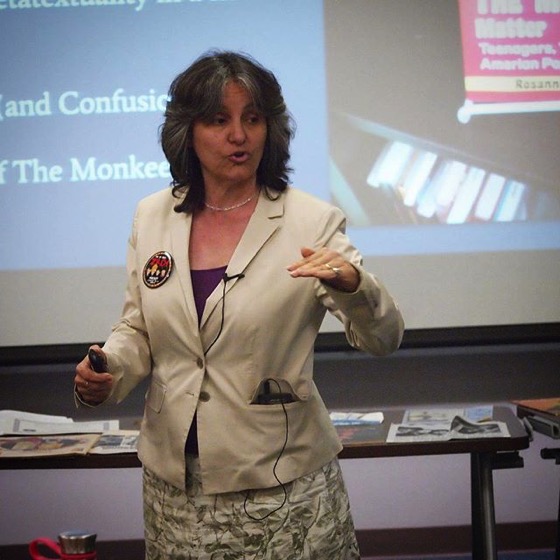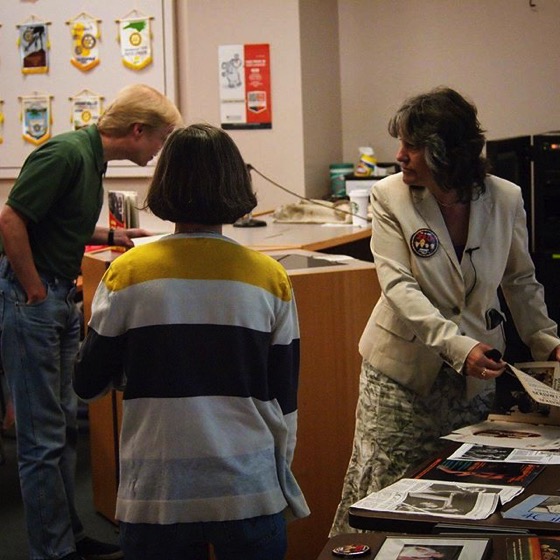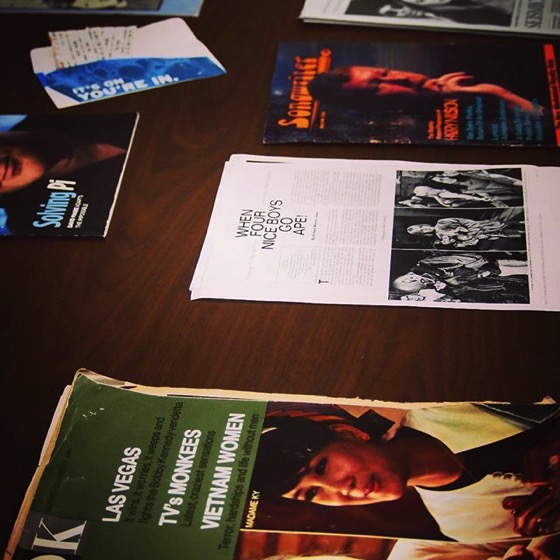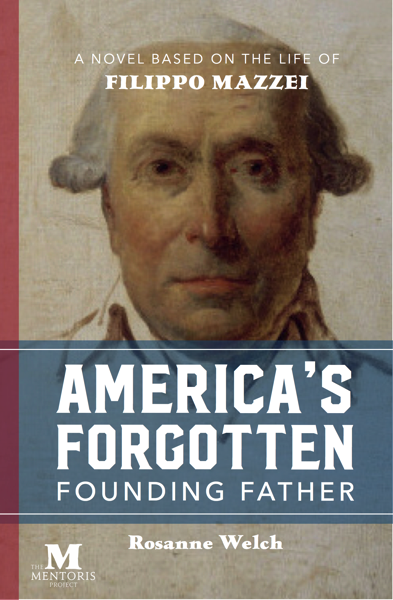Rosanne Welch, PhD, Author of Why The Monkees Matter, presents “How The Monkees Changed Television” at a Cal State Fullerton Lunch Lecture on May 8, 2018.
In this talk, she shows how The Monkees, and specifically their presence on television, set the stage for large changes to come in the late 1960s.
Transcript
We’re going to talk about what was my favorite tv show when I was about 7-years-old and who knew that I would grow up and become a professor of Television Studies and I was asked at one point here at Fullerton to do a summer program we have for students, Gear Up, which is a program for students from high schools who are going to be introduced to what college is like so that they can be more comfortable signing up. It’s low income/high-achieving kids and so for that, they asked me to do a class in Critical Studies which is how to see into television programming, what was the ideology? What was behind the ideas of the show? And in doing so I thought “Well, gee, I want to talk about something I want to talk about so I chose my favorite show which I hadn’t really looked at in years only to find it was far more innovative than I had ever given it credit for as a kid.
Why The Monkees Matter: Teenagers, Television and American Pop Culture
McFarland (Direct from Publisher) | Amazon | Kindle Edition | Nook Edition
About Rosanne Welch, PhD
Rosanne Welch, PhD is a writer, producer and university professor with credits that include Beverly Hills 90210, Picket Fences, Touched by an Angel and ABC NEWS/Nightline. Other books include Why The Monkees Matter: Teenagers, Television and American Pop Culture (McFarland, 2017) and Women in American History: A Social, Political, and Cultural Encyclopedia and Document Collection (ABC-CLIO, 2017), named to the 2018 Outstanding References Sources List, by the Reference and User Services Association (RUSA), a division of the American Library Association. Welch has also published chapters in Torchwood Declassified: Investigating Mainstream Cult Television (I.B.Tauris) and The American Civil War on Film and TV: Blue and Gray in Black and White and Color (Lexington Books, 2018) and essays in Doctor Who and Race: An Anthology and Outside In Makes it So, and Outside in Boldly Goes (both edited by Robert Smith). By day she teaches courses on the history of screenwriting and on television writing for the Stephens College MFA in Screenwriting programs. Her talk “The Importance of Having a Female Voice in the Room” at the 2016 TEDxCPP is available on YouTube.
Podcast: Play in new window | Download
Subscribe: RSS
![01 Introduction from How The Monkees Changed Television with Rosanne Welch, PhD [Video] (0:50)](https://rosannewelch.com/wp-content/uploads/2018/05/monkees-tv-01-intro.png)




![12 LGBTQ Representation and Doctor Who from Gender Diversity in the Who-niverse [Video] (0:52)](https://rosannewelch.com/wp-content/uploads/2018/05/gender-dw-12-lgbtq.jpeg)


![How The Monkees Changed Television with Rosanne Welch, PhD (Complete Presentation and Q&A) [Video] (45:06)](https://rosannewelch.com/wp-content/uploads/2018/05/How-The-Monkees-Changed-Television-1.png)



 and Follow
and Follow
![11 Torchwood and Doctor Who from Gender Diversity in the Who-niverse [Video] (0:44)](https://rosannewelch.com/wp-content/uploads/2018/05/gender-dw-11-torchwood.jpeg)